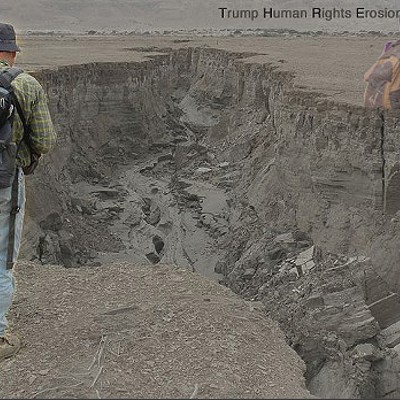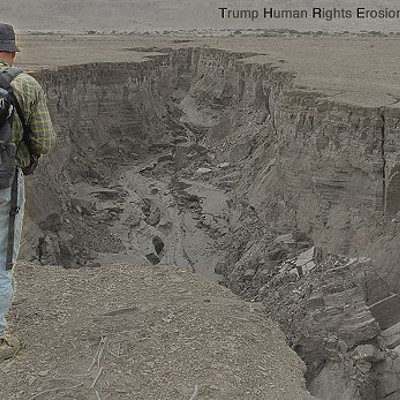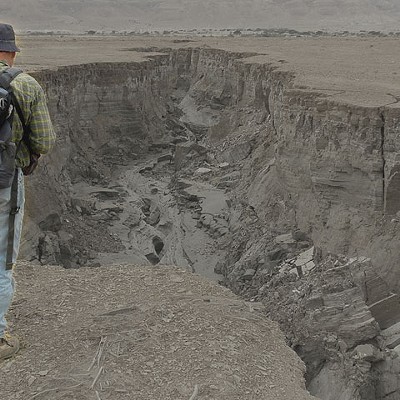Friday, November 18, 2016
What Will We Tell the School Children?
How should teachers deal with the Trump presidency in their classrooms? Tough question. Genuinely tough question. The campaign was a hard enough call in the classroom, what with its graphic accusations of Trump's history of sexual predation and the allegation that Hillary should be spending time in jail, not in the White House. But now the election is over. Trump is president. How should teachers discuss the president elect in class?
Before delving into the present, I want to take a look at a classroom controversy during Obama's first year. It came in September, 2009, when Obama planned to give a back-to-school talk to the nation's children. The first President Bush delivered a similar talk in 1991. Before him, in 1988, Reagan did the same. No major fuss was raised about either event, accusing those presidents of trying to brainwash impressionable children with partisan speechifying. But the anti-Obama scream machine cranked its outrage up to eleven, calling the speech part of Obama's agenda to corrupt the youth of America, as if classrooms across the country were giving the Grand Wizard of the KKK an hour to poison innocent minds. The topic dominated the news for days. The result was, some schools refused to air the speech, others gave teachers the option, and many said students could only watch if they had a permission slip from their parents, like a speech from Obama was the equivalent of an R-rated movie.
So anyone who says teachers and everyone else should simply say Trump is our president and he represents all of us needs to remember Obama's back-to-school speech and the never-ending Tea Party outrage directed at our current president. To tell people to cool it about Trump is to say, "We all need to respect the president, starting . . . NOW."
Some teachers believe, as I do, that Trump and what he represents has the potential for being the worst thing that's happened to this country in our lifetime. Others are overjoyed with the election results. I don't think teachers should walk into the classroom and launch into diatribes about their opinions on the election. But the Trump presidency and its ramifications is a fit subject for spirited, even controversial classroom discussion.
If there are instances of bullying at school related to the agenda Trump pushed during his campaign, those issues deserve a complete, open airing. If some students seeing Hispanic students start chanting, "Build a wall. Build a wall," if some students seeing students of Middle Eastern dissent shout, "Terrorist, get out of my country!" those are direct results of the campaign. Schools should condemn those students' actions and punish them for their behavior, but schools are also justified, I would say almost duty bound educationally, to relate the incidents back to Trump's rallies which encouraged that kind of behavior. To do anything less would be to pretend our president elect never said what, in fact, he said over and over.
Teachers should be able to conduct open discussions about the election in their classrooms, allowing all students to speak their minds while encouraging them to be civil and listen carefully to one another. Teachers should make every attempt to fact check student assertions, if not in real time, since that's not always possible, then in the days following. Scrutinizing what students have heard and what they believe to be true is an invaluable educational lesson in today's world where truth can be the first casualty of politics. An open discussion in the (we hope) safe environment of the classroom allows students to reach informed conclusions. It encourages what is best about a democratic process where the freedoms of speech and opinion are encouraged.
If a student asks a teacher what he/she thinks of the election results, the teacher has the right to say, "That's not something I want to discuss in class," but teachers should also have the right to tell students their honest opinions, making sure to include the fact that close to half the electorate, including some of the students in the room and their parents, hold the opposite view.
An article published a few days ago by Frederick Hess and Chester Finn, Jr., conservatives who write about education, is titled, Stop Teaching Anti-Trump Bias. An answer from Kevin Carey, an education policy analyst on the left, is titled, Teachers Should Tell the Truth About Trump. It's an important discussion which will be going on for a long time, and one without clear, easy answers.
Before delving into the present, I want to take a look at a classroom controversy during Obama's first year. It came in September, 2009, when Obama planned to give a back-to-school talk to the nation's children. The first President Bush delivered a similar talk in 1991. Before him, in 1988, Reagan did the same. No major fuss was raised about either event, accusing those presidents of trying to brainwash impressionable children with partisan speechifying. But the anti-Obama scream machine cranked its outrage up to eleven, calling the speech part of Obama's agenda to corrupt the youth of America, as if classrooms across the country were giving the Grand Wizard of the KKK an hour to poison innocent minds. The topic dominated the news for days. The result was, some schools refused to air the speech, others gave teachers the option, and many said students could only watch if they had a permission slip from their parents, like a speech from Obama was the equivalent of an R-rated movie.
So anyone who says teachers and everyone else should simply say Trump is our president and he represents all of us needs to remember Obama's back-to-school speech and the never-ending Tea Party outrage directed at our current president. To tell people to cool it about Trump is to say, "We all need to respect the president, starting . . . NOW."
Some teachers believe, as I do, that Trump and what he represents has the potential for being the worst thing that's happened to this country in our lifetime. Others are overjoyed with the election results. I don't think teachers should walk into the classroom and launch into diatribes about their opinions on the election. But the Trump presidency and its ramifications is a fit subject for spirited, even controversial classroom discussion.
If there are instances of bullying at school related to the agenda Trump pushed during his campaign, those issues deserve a complete, open airing. If some students seeing Hispanic students start chanting, "Build a wall. Build a wall," if some students seeing students of Middle Eastern dissent shout, "Terrorist, get out of my country!" those are direct results of the campaign. Schools should condemn those students' actions and punish them for their behavior, but schools are also justified, I would say almost duty bound educationally, to relate the incidents back to Trump's rallies which encouraged that kind of behavior. To do anything less would be to pretend our president elect never said what, in fact, he said over and over.
Teachers should be able to conduct open discussions about the election in their classrooms, allowing all students to speak their minds while encouraging them to be civil and listen carefully to one another. Teachers should make every attempt to fact check student assertions, if not in real time, since that's not always possible, then in the days following. Scrutinizing what students have heard and what they believe to be true is an invaluable educational lesson in today's world where truth can be the first casualty of politics. An open discussion in the (we hope) safe environment of the classroom allows students to reach informed conclusions. It encourages what is best about a democratic process where the freedoms of speech and opinion are encouraged.
If a student asks a teacher what he/she thinks of the election results, the teacher has the right to say, "That's not something I want to discuss in class," but teachers should also have the right to tell students their honest opinions, making sure to include the fact that close to half the electorate, including some of the students in the room and their parents, hold the opposite view.
An article published a few days ago by Frederick Hess and Chester Finn, Jr., conservatives who write about education, is titled, Stop Teaching Anti-Trump Bias. An answer from Kevin Carey, an education policy analyst on the left, is titled, Teachers Should Tell the Truth About Trump. It's an important discussion which will be going on for a long time, and one without clear, easy answers.
Tags: Donald Trump , Classroom discussion














